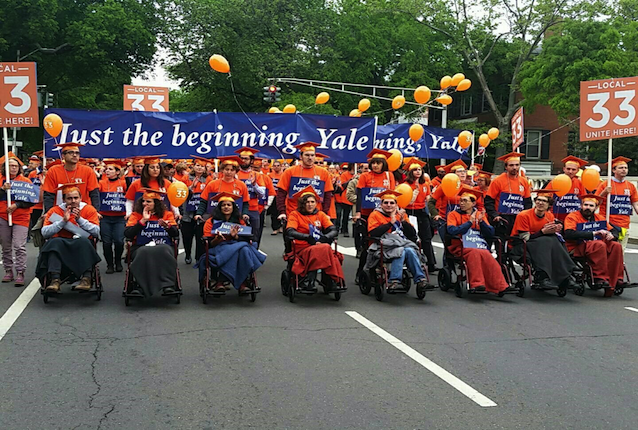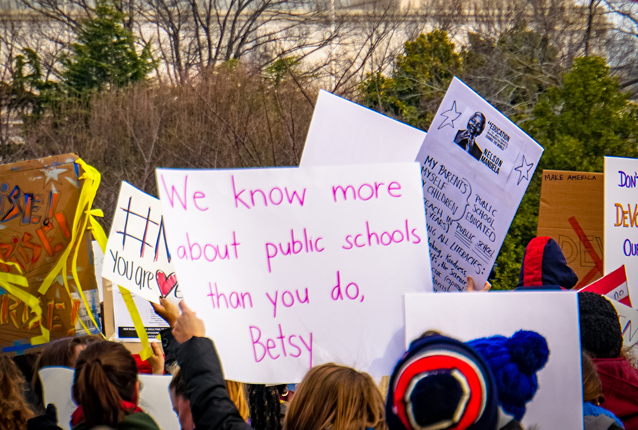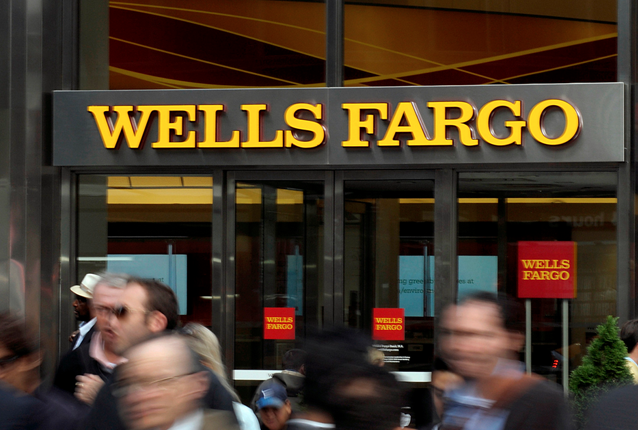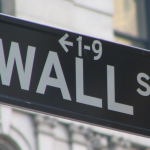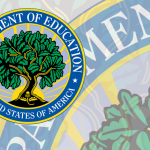On March 6, amid growing concerns that schools are receiving kickbacks from banks selling products and opening branches on their campuses, students at 20 campuses around the country delivered letters to their school’s administrators asking for increased disclosure about the details of these partnerships.
Currently, colleges and universities are only required to disclose information about college credit cards under the Credit Card Accountability, Responsibility, and Disclosure (CARD) Act. But students requested that administrators take a step further and disclose all partnerships with banks and financial institutions selling students and families products like debit and prepaid cards, preferred private student loans, deposit accounts, and financial aid disbursement.
Citing a responsibility to current and prospective students, as well as parents and community members, students explained that consumers are often under the impression that their schools are independently advocating for the use of a particular bank or product without realizing that the school is actually being compensated in the process. Many also cite entering into agreements with these financial institutions on account of their belief that their respective school was endorsing the company and its products.
Students are not alone in their concern about these bank products. Over the last several months, several oversight agencies have encouraged increased scrutiny of these back-door deals between banks and schools.
In December 2013, Director of the Consumer Financial Protection Bureau (CFPB), Richard Cordray, called upon financial institutions to disclose these partnerships. He stated:
“Students and their families should know if their school, whether well-intentioned or not, is being compensated to encourage students to use a specific account or card product. When financial institutions secretly give kickbacks to schools, they are engaging in risky practices.”
In January, the CFPB even posted some of the contracts schools have with banks to promote debit cards and revealed that many value in the millions.
Following up on the CFPB’s request for disclosure, the U.S. Government Accountability Office (GAO) released a report in February 2014 titled, “College Debit Card: Actions Needed to Address ATM Access, Student Choice, and Transparency.” The report detailed consumer concerns related to fees passed onto students, a lack of free ATM access, and a host of other issues, and read, in part:
“Schools or card providers appeared to encourage students to enroll in a college card rather than present neutral information about payment options.”
The report recommended that debit and prepaid card providers be required to file their college financial agreements with the CFPB for public review.
And just days after students delivered letters to their respective school administrations, Office of the Inspector General (OIG) released an audit, which found, in part:
“Schools had financial incentives in their contracts with servicers that created the potential for conflicts of interest that could influence school officials’ decisions and actions at the expense of student interests,” and, “Schools’ servicers appeared to deliver Title IV funds to students without charging fees. However, students who chose a servicer’s debit card option could incur fees after the servicer deposited the funds into the student accounts. In some cases, those fees appeared to be unique or higher than those of the alternative financial service providers.”
The OIG has now called on the Department of Education to take more action to protect student interests.
With three federal government agencies now looking into these contracts, students and community members taking action and demanding transparency on campus, and growing public scrutiny over the role Wall Street banks play in higher education, the question is no longer if these schools will have to disclose the kickbacks they’re receiving, but when.


